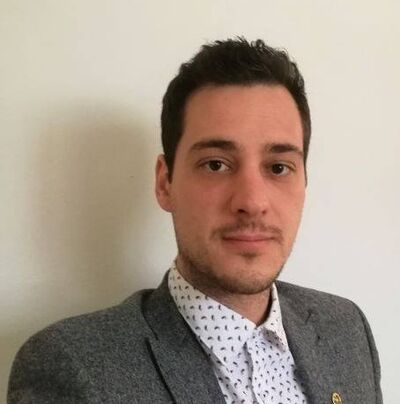MSc Thesis: Conversion of oil and gas wells to geothermal re-injection

REYKJAVIK, September XX - MSc in Sustainable Energy Engineering candidate, Vedran Zikovic, successfully defended his master's thesis where he investigated the conversion of oil and gas wells for geothermal re-injection. Vedran's research was supervised by Juliet Newson from Reykjavik University, and Sverrir Þórhallsson from the Icelandic GeoSurvey.
As Vedran explains, there are millions of abandoned oil wells around the world. If just a small fraction could be converted for geothermal utilisation, the environmental impact of geothermal energy would be reduced and these retrofit projects could see significant cost reductions in comparison to projects requiring new wells to be bored. Going on this theme, Vedran focused his research on the conversion of existing oil and gas wells to geothermal re-injection for potential geothermal utilisation at the Legrad Field, in the north-west part of Croatia, his home country.
The Legrad Field is an almost depleted oil and gas area with 19 wells that are potential candidates. He notes that their reuse could potentially result in mitigation of costs and environmental impact by not having to drill new wells, while achieving similar re-injection objectives. Vedran cautions that drilling new wells can be rather expensive and risky even in a familiar and relatively well-known locations since there are many unpredictable issues that can occur during drilling, such as temperature and pressure, formation change, permeability and porosity etc.
Vedran's research went over well selection and well design, included a cost analysis and also an environmental impact review. When considering the well selection, the criteria was developed based on specified re-injection parameters, which were then put to a grading method in order to compare and assess each option. Vedran then designed the wells based on their existing designs, and proposed re-designs as necessary. He proposes workover and drilling requirements for each candidate, along with new wellhead construction as per the re-injection requirements.
Following the engineering aspect of his research, Vedran tackled the economic feasibility of the project in his cost analysis. His financial study covered the estimated costs of workover and drilling works, equipment and material, wellhead and pipeline connection. Comparisons with the cost of drilling new wells were made to determine the profitability of each scenario.
Lastly, Vedran performed an environmental impact review addressed the impacts the drilling and workover projects may have on the surrounding ecosystems and the impact of each well candidate.
Congratulations Vedran on an excellent thesis project!
Vedran is active in the geothermal industry, and is presently teaching Geothermal Drilling & Well Design, a 6 ECTS, two week intensive course, held by the Iceland School of Energy. In light of the COVID-19 pandemic, Vedran has adopted the course to be engaging for online distance-learning.
